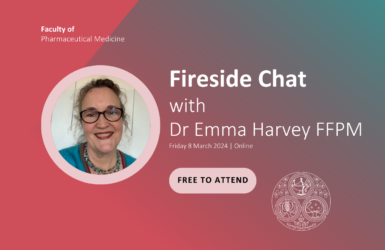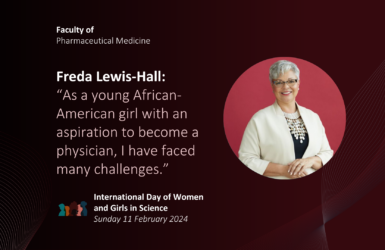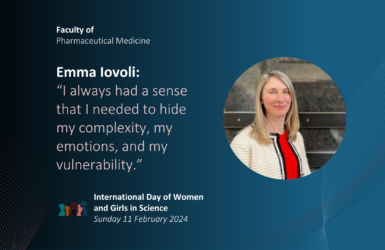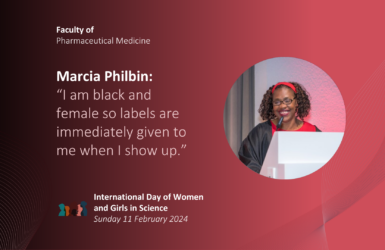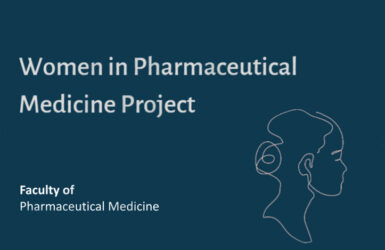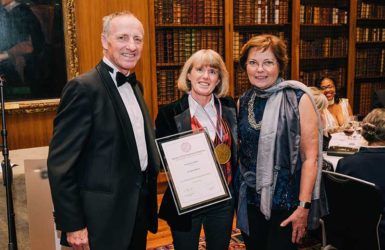Q&A with Katerina Anokhina
Posted on: Friday 9 February 2024
About Katerina
Ekaterina began her career as a medical doctor, and since becoming involved in rare endocrine disorders of children during her time in the clinic, her heart has drawn her interest towards orphan diseases. Over time, she transitioned to the pharmaceutical industry, gaining a second specialty in pharmaceutical medicine.
In her current role, Ekaterina advocates for the needs of the rare disease community and helps to bring innovative medicine to patients and their families.
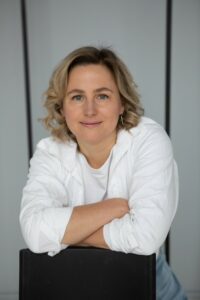
What inspired or motivated you to pursue a career in science?
Although I always found science subjects interesting at school, similarly to many kids my age, I initially wanted to be a police detective or an astronaut. However, as time passed by, the beauty of numbers, the puzzle of flying, the mystery of far-away galaxies and the fascination of how the human brain can do so many incredible things, started to take more and more of my focus. Eventually, the most difficult problem I had, was to choose which secret I wanted to unravel!
What message would you like to convey to women and girls aspiring to make their mark in the field of science?
Science would not exist if we were not bold enough to take risks. Failing is an essential part of scientific progress, and should not deter individuals from pursuing their goals in this field, despite initial setbacks.
How have you navigated and overcome gender-related challenges in your journey?
I was lucky enough to grow up in an environment where gender held little significance. I witnessed individuals who succeeded and those who didn’t. As I attempted to perceive the common traits among those who thrived, gender didn’t factor prominently in my considerations. Perhaps this could be due to my naivety at that time, but it also enabled me to overcome some of the gender barriers with unwavering conviction in my worthiness of my place.
Can you share a specific instance where your gender may have presented a challenge, and how you tackled it to continue progressing in your career?
I have three kids, meaning I had to take a break three times in my career. At the time, it seemed as if my career had experienced a setback, as fellows around me progressed, while I was busy looking after my kids. Looking back, I believe that this actually benefited my career. Each time I returned from the break, I came back with double the energy and a ready, focused mind. Raising my children also gave me a valuable perspective on what matters in life, and quite a few soft skills around negotiation and people management which in turn completed my work well.
What changes or advancements do you hope to see for women in science over the next decade, and how can we collectively work towards achieving these goals?
I believe we should stop positioning science as an ‘exclusive club’ for smart, high intellectual ‘nerds’, because Science is fun! Science is an adventure, it’s about caring and giving back to society, about puzzles and mystery, beauty, and harmony. It deserves diversity more than anything else!
On this special day, we want to celebrate your achievements. Can you share a project or accomplishment that you are particularly proud of during your career in science?
I work in the rare disease areas, where patients often spend too long in uncertainty and not knowing what is wrong. It takes an average of 5 years, and often longer, to receive a rare disease diagnosis. This journey often involves multiple doctors, specialists, and misdiagnoses along the way.
Unfortunately, still many diseases lack effective solutions. Witnessing the eyes of a parent whose child receives a diagnosis of a rare disease, much faster than just several years ago, and discovering that a recent scientific breakthrough now offers an effective treatment for their condition, serves as my inspiration. Knowing that I was involved in changing their lives for the better is deeply motivating.

